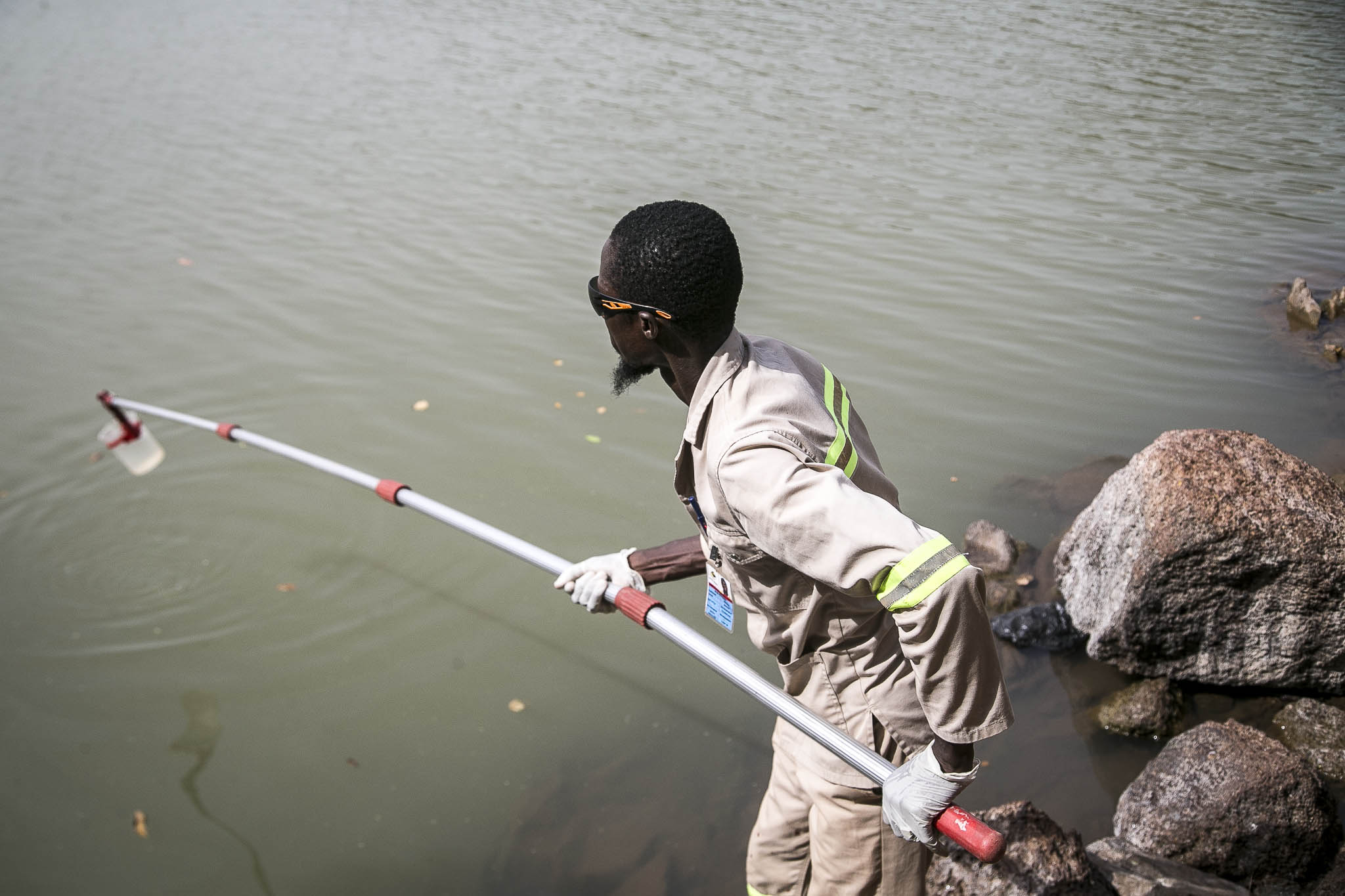Our Stories
Keeping Water Data Flowing at Fekola

August 4, 2022
Water is an essential resource for mining operations, which can have significant impacts including depletion, pollution, and discharge or seepage from tailings or waste rock impoundments. It must be managed for both short-term needs and long-term economic and environmental sustainability.
With the effects of climate change and rising water demands, sound policies are needed to ensure a sustainable supply of water for current and future generations.
The Fekola Mine in Mali has taken a significant step towards water sustainability with its Surface Water Monitoring Project.
DATA COLLECTION AND MONITORING
“The measurement and collection of continuous surface water data, especially during the wet season, has been a significant challenge since construction began in early 2015,” said Diakalia Kone, Environmental Manager at the Fekola Mine. “The collection of accurate flow data in the Faleme River, as well as data from tributaries across the lease, has been a priority task to provide reliable information for the ongoing review of the site-wide water management plan. This initiative addresses one of the biggest challenges faced by hydrologists, which is the lack of qualitative and quantitative data.”
KEY COMPONENTS TO SUCCESSFUL ON-SITE WATER MANAGEMENT
Under the direction of ALS Hydrographic, the Environment team chose four acceptable locations along the Faleme and its tributaries to install hydrostatic pressure sensors that monitor and record the level of surface water. In addition to these stations, video footage was captured using the Space Time Image Velocity (STIV) method to calculate accurate stream velocity distributions and to develop discharge rating relationships.
This technology has solved many of the challenges the Environment team faced when trying to physically measure flows in the rivers/creeks using traditional methods such as the Current Meter or Acoustic Doppler Current Profiler (ADCP).
The data collected not only informs water resource management, compliance monitoring, and discharge licensing conditions for Fekola but it can also be used for broader purposes such as runoff studies (including modelling and mapping), the design and engineering of water infrastructure, and water quality and aquatic habitat assessment.
Russell Polsen, ALS Hydrographic Project Manager, congratulated the Fekola team on the successful 2021 implementation of the project. “The team’s adoption of new technologies, as well as great teamwork and project management, have led to reaching this milestone. This project has created a benchmark for future environmental monitoring projects on and around the Fekola property.”


